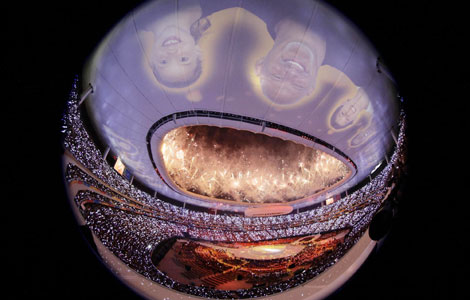Can China buy America's game?
Updated: 2011-09-25 07:59
By Dusty Lane (China Daily)
|
|||||||||||
Reports have leaked out that a group backed by the Chinese government is making a bid to buy the Los Angeles Dodgers, but baseball might not be ready for such a move, writes Dusty Lane.
The Los Angeles Dodgers are an absolute mess.
Owner Frank McCourt is tangled up in a very public divorce with his wife Jamie.
In April, he was forced to cede control of the team's day-to-day operations to Major League Baseball as the team struggled to cover its payroll.
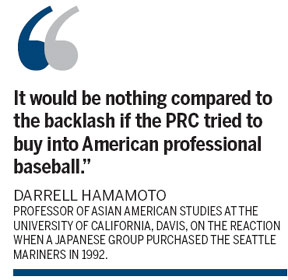 |
On Sept 1, a potential savior emerged.
That savior, though, was not from the US.
A group headed by Los Angeles Marathon founder Bill Burke - but backed by the Chinese government - reportedly offered McCourt $1.2 billion for the team.
That would be a record sale price for an Major League Baseball (MLB) team. It's vastly higher than the team's estimated worth of $800 million.
Easy decision, right?
The Dodgers, it turns out, may not be enough of an absolute mess to warrant a Chinese savior.
And if this team isn't, maybe no team will be.
Those pesky unwritten rules
The future of baseball looked bleak indeed as the city of Seattle closed the calendar on 1991.
Owner Jeff Smulyan had put the Mariners on the market for $100 million, and rumors the team would be sold and moved to another city were rampant.
Fans began to resign themselves to the reality that they would probably say goodbye to the team after 14 seasons.
On Jan 22, 1992, a potential savior emerged.
Japan's Hiroshi Yamauchi, president of Nintendo Co. Ltd., fronted a group willing to buy the team and keep it in place.
The city was elated.
MLB was not.
Commissioner Fay Vincent was soon on the record saying such a sale was "unlikely," adding "there is certainly a conviction that it is America's game."
He cited an unwritten rule that owners should be American or Canadian.
He would change his tune, but only after attempting to force Yamauchi to divert his money in such a way that he would control less than 50 percent of the voting interest in the team.
It was a desperate situation, and Yamauchi was finally allowed to save baseball in Seattle.
Barely.
'Chopsticks for bats'
As the sale of the Mariners drug through 1992, talk of xenophobia peppered the discussion.
"My suspicion is (baseball's opposition) is based on race," said Dennis Hayashi, national director of the Japanese American Citizens League, in an interview with the Seattle Times that February. "It's highly suspicious. It seems like every time they talk about it, their explanations get more convoluted."
Those explanations were convoluted indeed.
"We believe there is a trust element," Vincent said. "Baseball is something of a national trust.
"We don't believe baseball should lightly view control of baseball franchises who may not understand, or who may not be sensitive about what is unique about baseball."
But the city was desperate, and Yamauchi, whose company bases its American headquarters in the area, apparently proved trustworthy enough for baseball's owners to allow him to purchase the team.
The franchise has thrived under his ownership.
In 1999, it introduced Safeco Field, now one of baseball's premier venues. In 2001, it tied the MLB record with 116 wins. Last March, Forbes estimated the club's value at $449 million.
Spokesmen for the Mariners declined several requests to comment for this story.
MLB Senior Vice President of Public Relations Pat Courtney said the league has no specific quarrel with foreign ownership, citing the Mariners as proof.
"We do want to have someone in the local market in terms of overseeing the day-to-day operations, but in terms of the ownership of it, we don't have any guidelines," Courtney said.
"I think you have to let each individual situation develop on its own merits and see where it goes."
So if MLB's first experiment with foreign ownership is a success, a second flirtation shouldn't be too problematic, right?
"Wow, Frank McCourt or commies?" the Los Angeles Times' Steve Dilbeck asked on his blog.
Criticisms span the vast space.
"Maybe they'll replace the fabled Dodger Dogs with wonton soup," wrote Steve Kreisman of the Huffington Post. "The Dodger bats are so anemic, it already seems like they're using chopsticks instead of bats."
For his part, McCourt has said he has no interest in selling the team.
Reports said the original offer was good for 21 days, though there's been no news on where the deal stands, and Courtney wouldn't comment on it.
Related Stories
MLB to foster China's baseball Yao Ming on plateau 2011-05-20 21:56
A-Rod to be interviewed by MLB in poker probe 2011-08-05 08:01
MLB is keen to foster game among Tibetans 2011-05-24 07:57
MLB takes over operation of Dodgers 2011-04-22 10:35
Improving China starstruck by MLB's Choo 2010-11-19 09:18
MLB swings for game in China 2010-07-12 10:04
- China keeps pushing for more trees in cities
- Xi'an show comes to a fine blooming end
- Wen stresses importance of people's livelihood
- China, Japan need global view: Wen
- China, ASEAN to enhance cultural cooperation
- Gadhafi body unburied, rumors afloat
- Russia bans US officials in tit-for-tat visa row
- US urged not to provoke trade war with China
Hot Topics
Libya conflict, Gaddafi, Oil spill, Palace Museum scandal, Inflation, Japan's new PM, Trapped miners, Mooncake tax, Weekly photos, Hurricane Irene
Editor's Picks
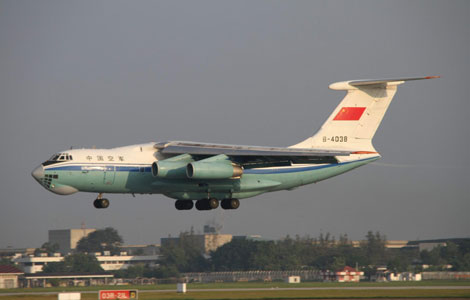
|
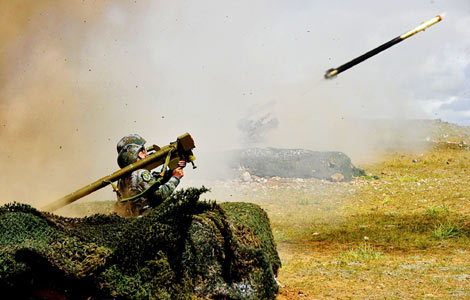
|
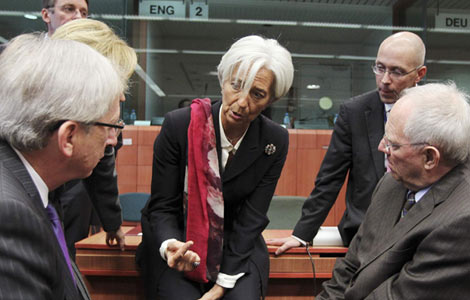
|

|
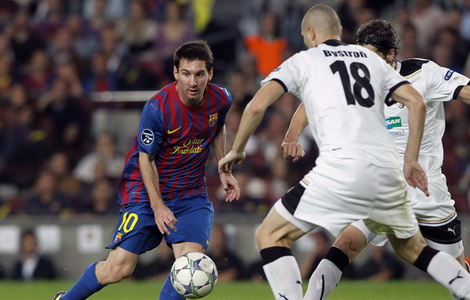
|
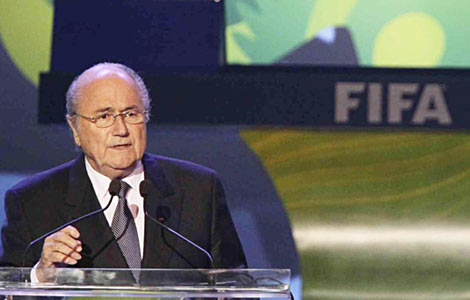
|




